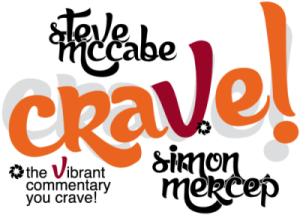Nerve is 90 minutes of engagingly tense and sharp thriller. The problem is that it’s a 96-minute film.
The film tells the story of the splendidly-named Venus “Vee” Delmonico (Emma Roberts), a slightly shy high-school girl from Staten Island who finds herself drawn into Nerve, an online game in which Players perform dares for financial reward from the Watchers who set the dares. They start off relatively innocently — Vee’s first dare, which scores her an easy hundred dollars, is to kiss a random stranger in a particular diner for five seconds. The stranger she picks is Ian (an enjoyable slimy Dave Franco), who, as luck would have it, is also a Player. Dare completed, Vee finds she is developing a liking for the game, and starts taking on more and more, well, daring dares, starting with riding to Manhattan with Ian at night. As the story develops, the dares become increasingly dangerous, and Vee finds herself increasingly reluctant to continue, and increasingly trapped in the game.
It’s a clever setup, and the story is told tightly and enjoyably. It’s a short film, which is one of its greatest strengths — the pacing is snappy, and directors Henry Joost and Ariel Schulman keep it moving at a pleasingly neat clip, ratcheting up the tension as the dares grow in risk and vertiginosity, to the point that I spent most of a couple of scenes looking away from the screen as the film explored a particular phobia of mine. Roberts finds depth in a fairly straightforward character — she’s an enjoyable screen presence who clearly comes more from the “actual actor” side of the family than Auntie Julia. And the supporting cast, in particular Emily Meads, looking for all the world like a younger Geena Davis, offer interesting foils for Vee’s increasing recklessness and paranoia.
And Nerve manages to understand, reasonably if not perfectly, how the online world works. Gone, it appears, are the days when what we see on screen are cartoonish depictions of software — Vee uses a Mac, running Mac OS X, and it looks just like OS X. And, let’s face it, audiences are perfectly aware of what their own screens look like, and expect the screens they seen on the big screen to look similar. Of course, there’s a hacker — there has to be, in a film like this, doesn’t there? — played, in this case, by Samira Wiley of Orange Is The New Black fame (fame indeed — as soon as her face appeared on-screen, the oohs from the Auckland audience were quite audible), and of course she can hack open-source software because, well, if it’s open-source then your server is too, right? Except that we’re also told that there is no server, which is why Nerve can’t be shut down by the police. Yes, there are plot holes and glaring tech-nonsenses if you look for them — it’s better not to ask who’s piloting the drones that observe some of the dares, and it’s surprisingly how well iPhone microphones pick up sounds from a hundred feet away — but it’s to Nerve’s credit that they don’t get in the way of a very enjoyable ride.
What does get in the way of the enjoyment of the film is the ending. No spoilers, of course — we’re better than that here at Crave! — but the film’s big, dramatic conclusion (think The Social Media meets The Hunger Games) fails to live up to the promise of the rest of the film’s potential. Aside from the ending, though, Nerve is an impressive piece of work, one which does raise questions of how much we are now willing to let go of our privacy, how voyeuristic we have become or are willing to become if people — real people, our neighbours, our friends — are images on a smartphone screen, what we’re willing to do for a price, whether that price is money, or fame, or simple excitement, and how manipulable we can be by strangers at the other end of an Internet connection. And the answers it offers to these questions, thanks in no small part to the entirely credible and plausible portrayals, by Roberts and Meade, of normal people being sucked into something very much bigger than them alone, are rather alarmingly believable.
It is, in the end, a better film than its premise might suggest it would be. Do see it — I’m telling you, not daring you.

